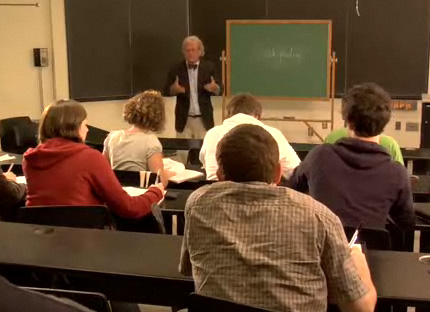When I was younger, if I wanted to learn a fact I went to the encyclopedia. Of course it was a huge collection and only if you were fortunate did you have any in your house. But for school assignments I could always count on getting the facts right for my projects and homework assignments by reading the public library’s collection. However in 2012, going to an encyclopedia is like going hunting and gathering. Its an old out of date concept for lots of folks. In this day and age if you want to learn a fact you google it. And I bet you 10,000 dollars that the top Internet search will of course be wikipedia.
I do not want to sound like a hater of the information highway. I think the concept of behind Wikipedia being a place to share information and build a collective portal of knowledge is a wonderful idea. But because its so open and just about anyone can contribute to the building process, we must be careful when accepting everything in wikipedia as fact. If the founder of Wikipedia, Jimmy Wales have tried to convince students not to rely on it for research, we need to really pay attention.
Let me put the dilemma another way. Imagine that there is a group of 10 of your friends. All of your friends think they know something about the NBA. They quote stats, make arguments, recall pass playoff games and history. Everyone thinks they are right. You all compose it in a book as a collection of facts. Will you feel comfortable using it on ESPN as the bonafide truth? Probably not. Stephen A. Smith will destroy you. You know your friend Lester exaggerates. Jason gets facts confused. Ted knows sports but Michelle is much more convincing and only partly right. Ladies and Gentlemen that is what wikipedia is. Its a conversation shared among strangers who may or may not have all the facts rights. Is it entertaining to hear them? Yes. But is all true? Of course not.
Every semester I give my students the “don’t use Internet sites to help them make sense of philosophy readings” speech. I do this not because I am only trying to get them to use their brains. I want them to do that very much. But I am also aware that wikipedia’s facts are not all correct and I do not want them to be taught or be convinced that something is right when it is not. (I also wish the Wikipedia Blackout protest against SOPA happened further in the semester instead of the first week of classes. It would of been a battle won in the war for accurate information but thats another post)
Do not accept information blindly because it is on the internet or because it is popular. Do not be easily convinced of certain facts. If you want to know facts, read a text with credible sources. Be a critical reader in search of proven factual information. Do not go the easy route. Knowledge is too priceless. Every other lie on the internet is simply counterfeit. Don’t trust Professor Wikipedia. Fact check the “fact” portal. If you don’t believe me, Listen to Professor Stephen Colbert and his humorous lecture called Wikiality. I do not believe he says it better, he just says it with more humor than I ever could.
